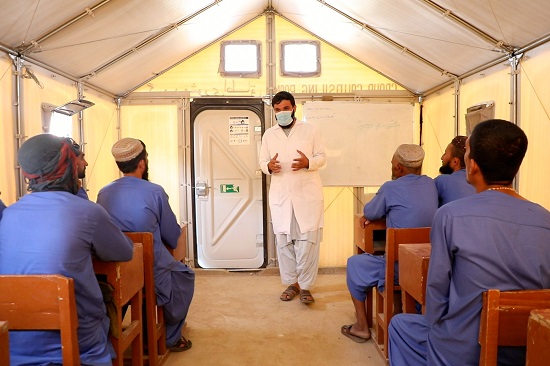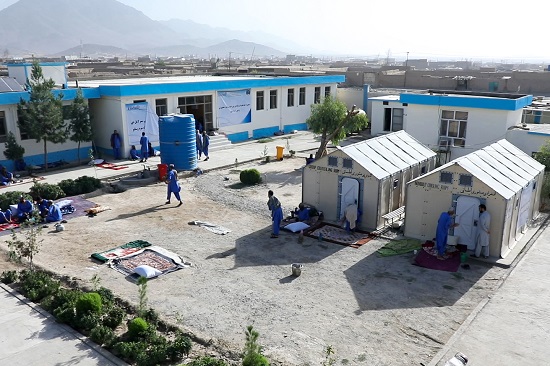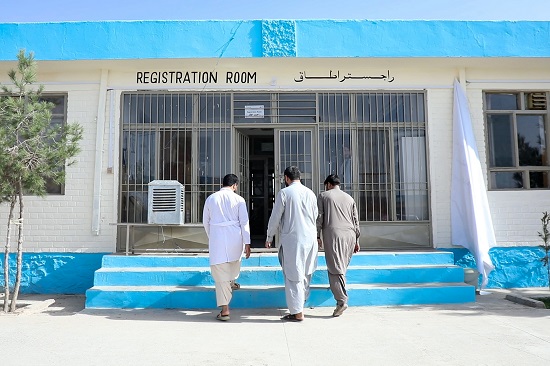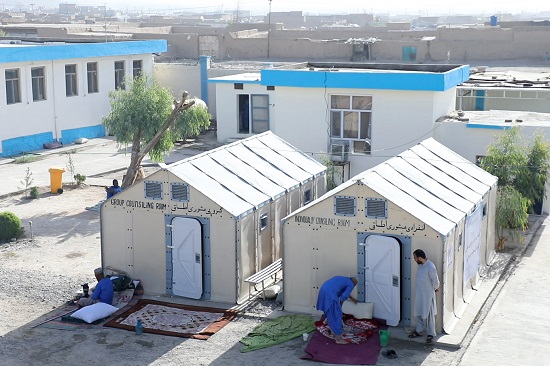
10 August 2023, Kandahar, Afghanistan – The World Health Organization (WHO), with financial support from the European Union (EU), transformed a 100-bed drug addiction treatment centre in Kandahar, Afghanistan. The Centre's upgraded facilities are now better equipped to support Afghans in need on their path to recovery.
The newly renovated centre seeks to provide quality drug treatment programmes that help restore and maintain the physical, mental, social, psychological and economic well-being of vulnerable people from Kandahar and neighbouring provinces. The holistic approach of the programme is essential in addressing drug use and its related mental and physical disorders and deaths. It also focuses attention on reducing negative social and economic consequences such as unemployment, discrimination and stigmatization, crime and violence.
“The opening of the treatment centre in Kandahar brings drug treatment closer to vulnerable populations and highlights our continuing commitment to address the overall health of Afghans,” says Dr Luo Dapeng, WHO Representative in Afghanistan. “WHO acknowledges the strategic support of the EU and other partners in providing integrated, qualitative and comprehensive drug use disorder and mental health and psychosocial support services that address immediate needs of people towards achieving universal health coverage. Drug use disorders need to be considered primarily as a health problem rather than criminal behaviour.”
Raffaella Iodice, EU Chargée d’Affaires a.i., emphasized during the project's launch in December 2022 the importance of health and well-being of the people of Afghanistan. “Our European Union support will ensure the transformation of treatment centres in several provinces, one of those in Kandahar. It stands as a beacon of hope offering support to Afghans on their journey to recovery. Improving health and well-being of the people of Afghanistan – in joint effort with the World Health Organization and the United Nations Office on Drugs and Crime – is one of our priorities for the country.”
In 2022, the EU allocated €16 million to WHO and the United Nations Office on Drugs and Crime to ensure that vulnerable populations in Afghanistan, including women, girls, minorities, internally displaced persons and refugees, can access integrated and comprehensive mental health and drug use treatment and rehabilitation services. The renovated centre is among several ones supported by the EU-funded project on increasing access of vulnerable populations in Afghanistan to qualitative and comprehensive mental health and psychosocial support and drug use disorder services.



For more information, please contact:
Joy Caminade at
Head of Communications
WHO Afghanistan
Nourhan El-Nagdy at
Donor Communication Officer
WHO Afghanistan
Tim Gillmair at
Press and Information Officer
EU Delegation to Afghanistan


